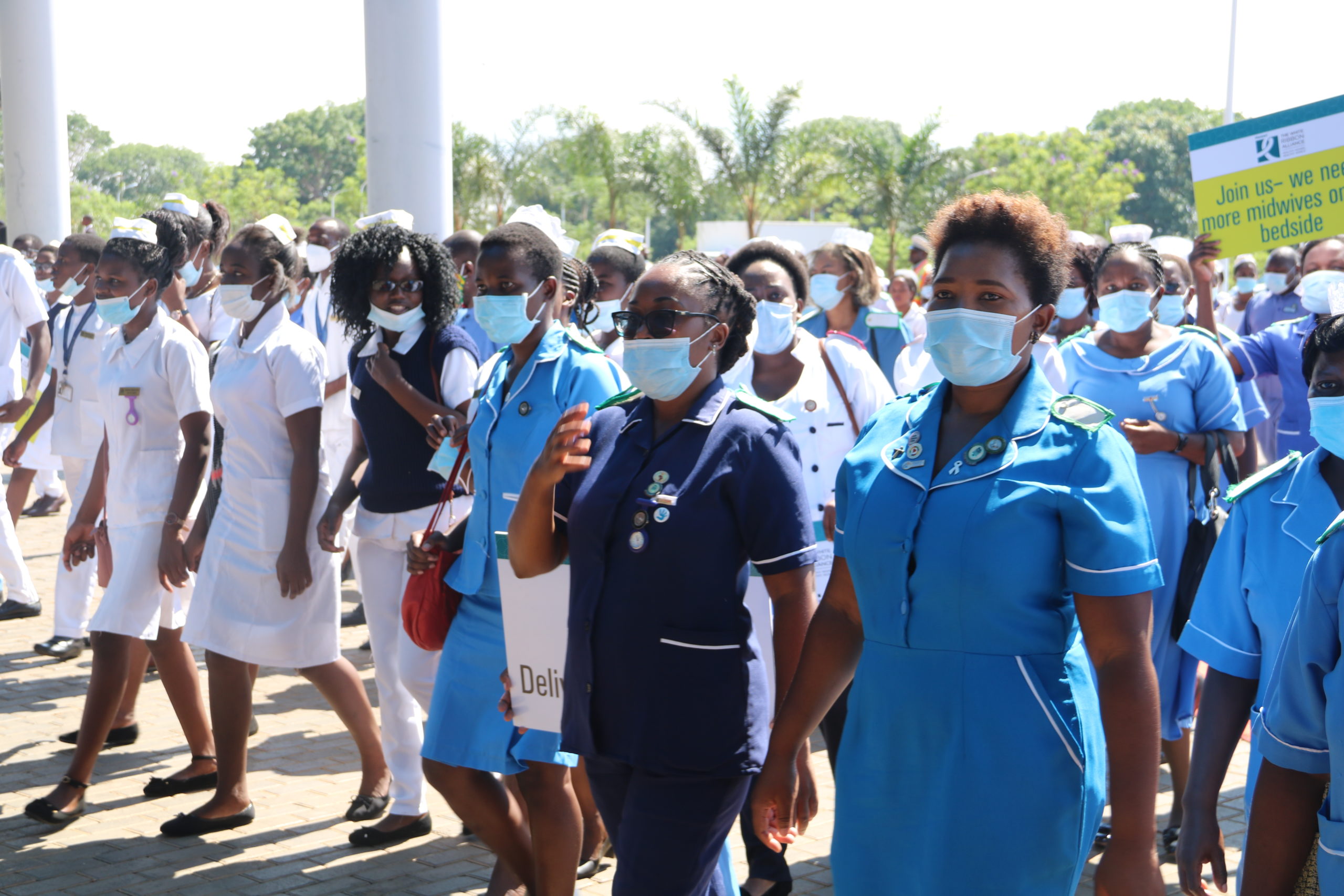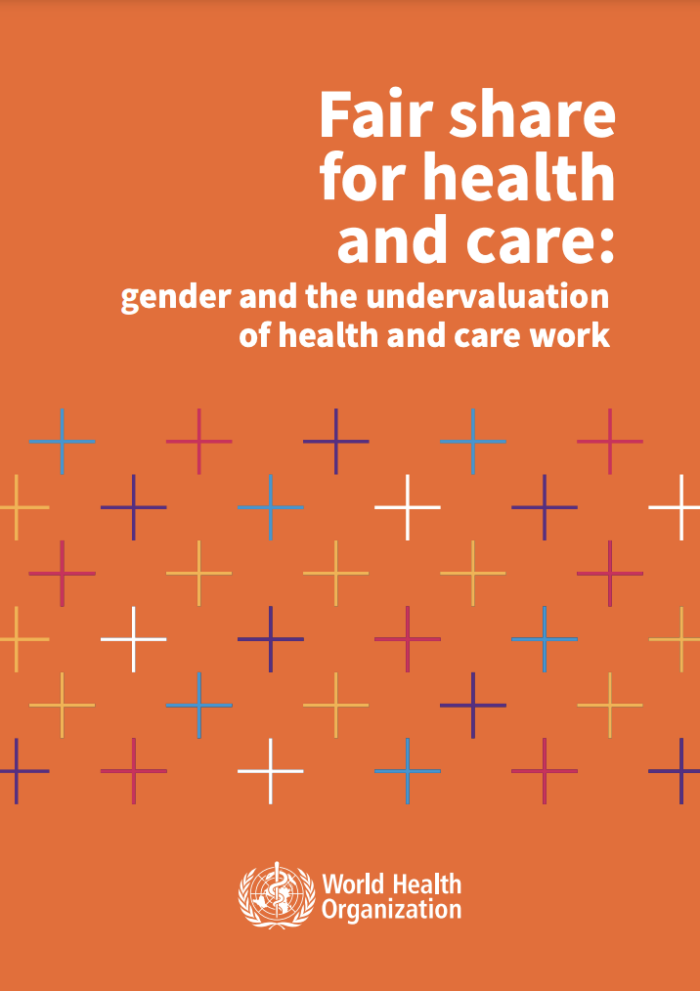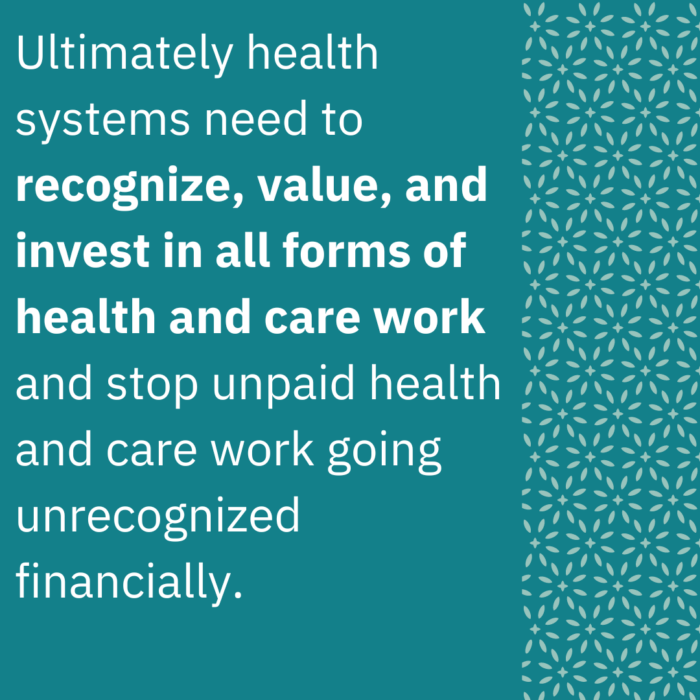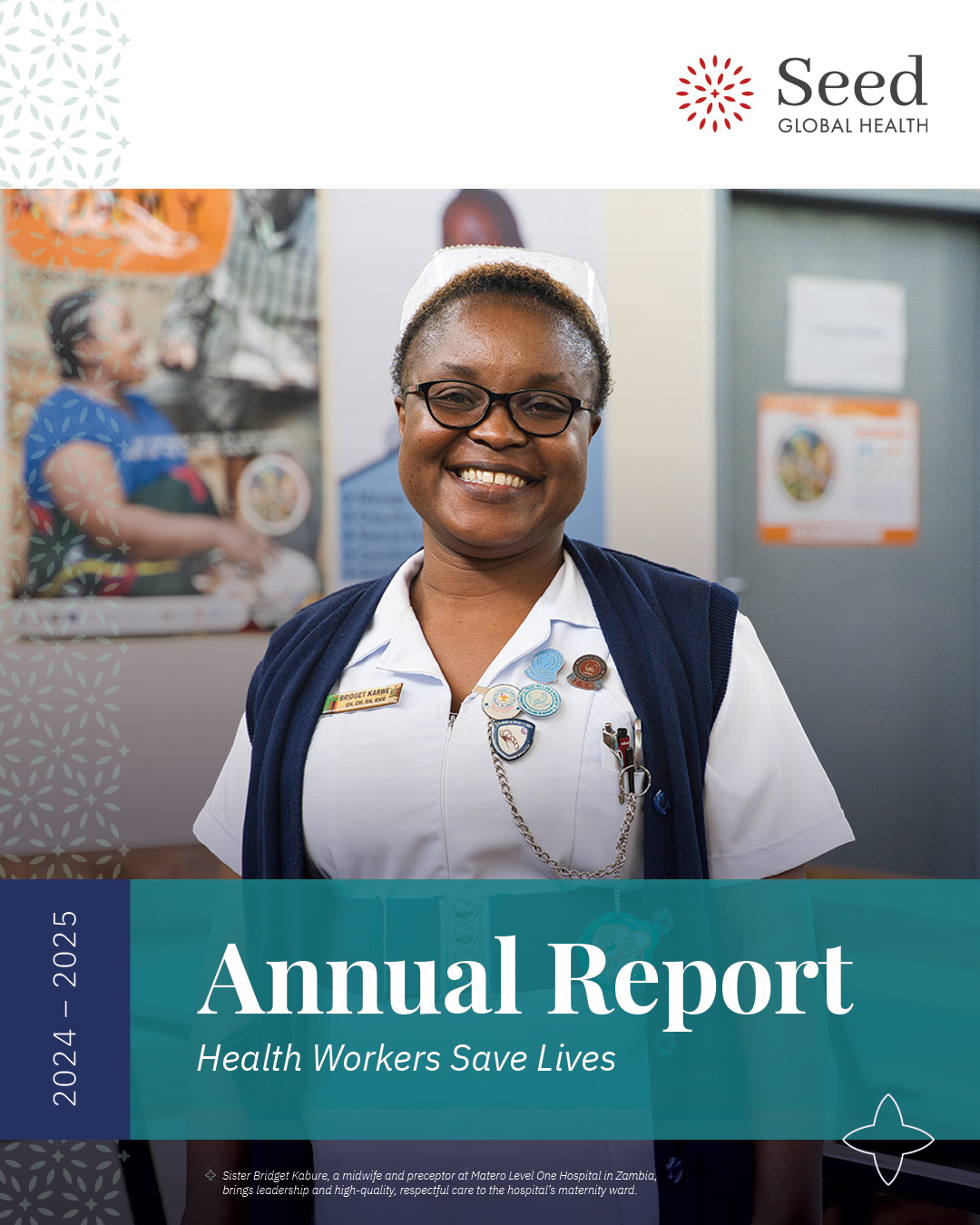
New WHO Report on Gender and the Health Workforce
Gender fair investments in health and care work are needed to create better health outcomes

A new World Health Organization (WHO) report “Fair share for health and care: gender and the undervaluation of health and care work” underscores how gender inequalities in the health and care sector have a negative impact on women, health systems, and health outcomes.
Low pay and demanding working conditions are commonly found in the health and care sector. Because women account for 70% of the health workforce globally and perform 76% of all unpaid activities in the health and care sector, poor working conditions have a greater negative impact on women.
Overcoming gender inequity within health systems is a necessary part of achieving better health outcomes for patients.
The WHO report demonstrates the importance of valuing women within the global health workforce, alongside what actions policymakers can take to make this happen, with an ultimate focus on empowering women in the health workforce economically and delivering better health outcomes.
Six actions for policymakers:
- Improve working conditions for all forms of health and care work, especially for highly feminized occupations
- Include women more equitably in the paid labor workforce
- Enhance conditions of work and wages in the health and care workforce and ensure equal pay for work of equal value
- Address the gender gap in care, support quality care work, and uphold the rights and wellbeing of caregivers
- Ensure that national statistics account for, measure, and value all health and care work
- Invest in robust public health systems

Parallel to policy changes is the need for a change in how investment in health systems is made. The report highlights how continued underinvestment in health and care work has exacerbated inequality and change is needed to address the issue. It also has the added potential to advance other goals like achieving universal health coverage.
Ultimately health systems need to recognize, value, and invest in all forms of health and care work and stop unpaid health and care work going unrecognized financially. Through policy and investment changes, this can be achieved, benefitting women, the health systems in which they work, and patient outcomes.

